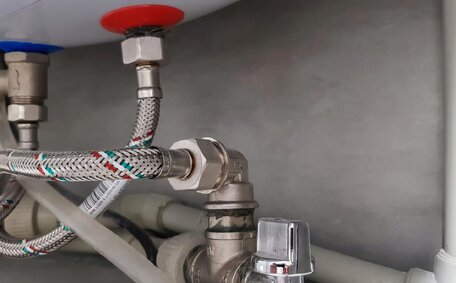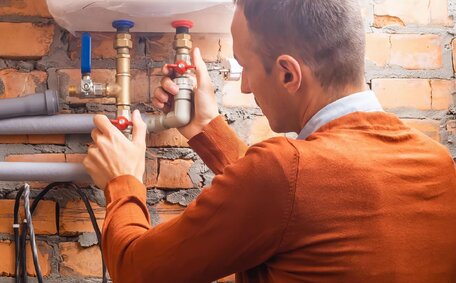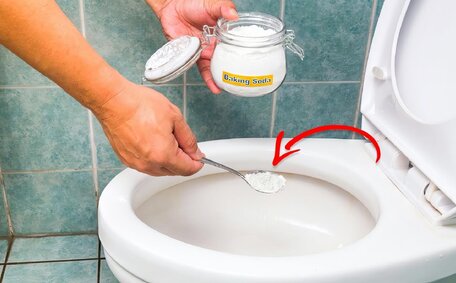Introduction to blocked drains
Blocked drains are a prevalent plumbing issue causing significant inconvenience for North Epping homeowners and businesses. A blocked drain prevents wastewater from properly draining out your fixtures like sinks, showers, bathtubs, and toilets. This can lead to foul odours, hot water backed up in your drain, flooding, and potential damage if left untreated.
Pouring fats, oils, and grease down the drain is a notably common cause of blockages.
Flushing items like cotton swabs, dental floss, paper towels, cat litter, and toys that get flushed down the toilet may seem harmless but they often cause blocked drains, with materials getting stuck or snagging inside pipes. Debris entanglement over time often escalates to amassed blockages, impeding water flow and causing clogs. Disruptive root growth can occur when tree root invasions breach pipe cracks and gaps.
A blocked drain can cause not just inconvenience, but also can seriously damage your home’s infrastructure through bursting pipes, sewer line backups, foundation erosion, and contamination risks. Catching your blocked drain early and addressing foreign object issues is crucial.
We aim to inform property owners of the specific causes of blocked drains, their effects on plumbing, and offer prevention strategies. Additionally, we will discuss professional drain cleaning services from North Epping Plumbing for removing obstructions and maintaining clear drains.
Common foreign objects that cause blockages
Many household items that homeowners commonly send swirling into your drainage system or accidentally flush down toilets can lead to troublesome clogs. Identifying foreign objects and understanding how they can get snagged and cause your major plumbing issues is vital to prevent blocked drains.
Some of the typical foreign object offenders within drain pipes that North Epping Plumbing encounters, which are the root of the problem can include:
- Paper products - Paper towels, tissues, disposable wipes
- Plastics - Water bottles, food containers, bags, toys
- Hair and fur - From people, pets in the home
- Food waste - Cooking oil, grease fat, oils, scraps
- Personal hygiene items - Cotton swabs, dental floss, sanitary products
- Organic matter - Tree roots, leaves, dirt
While these items are not always flushable or safe for the drain, they are often the very items that causes blocked drains when they end up travelling down our pipes. Together, endless items down your pipes intertwine and amass, leading to a frustrating clog.
Paper and plastic items often snag inside drains, while fats and oils stick to pipe walls, contributing to clogs. Furthermore, hair tends to wrap around obstacles, exacerbating the issue.
Many assume these modern materials will break down. Contemporary manufactured products frequently fail to break down, particularly within pipes devoid of air or light, leading to debris buildup that causes clogs, restricts water drainage, and necessitates professional removal.
Where blockages occur
Blockages caused by foreign objects often occur in key drainage points where a drain can experience the most use throughout a home’s plumbing system. Some of the most prevalent spots that frequently clogs drains include:
- Kitchen sink units - Grease, food particles, and debris going down sink with dishwater or when dumped directly can cling to pipes.
- Bathroom sinks - An intricate mix of hair, soap scum, and toiletry products often find their way down the drain, with hair soap combinations causing blockages over time.
- Your toilet -
- Your main sewer lines - Roots, soil, and larger objects entering through cracks can create substantial blockages in your sewer system.
- Laundry drains - Lint, detergent, and other substances left in pockets become stuck to pipes. Detergent buildup can also occur.
Foreign items typically accumulate in pipe systems at elbow joints, narrow segments, and areas compromised by roots. Narrow and multi-turn drains are more prone to obstructions over straight pipe runs.
As more debris from various types of blocked materials amasses, water flow is restricted until a full clog forms. Frequent use of kitchens, bathrooms, laundries, and toilets increases the chances of a drain blockage from foreign objects entering the drains. Over time, small clogs left unaddressed can become large ones where extensive drains can occur, extending deep into your sewage system.
Failing to address blocked drains promptly can lead to significant blockages, an occurrence that is often unexpected.
Consequences of blocked drains
If not tackled swiftly, blocked drains can result in severe consequences for North Epping homes. Backed up wastewater may lead to foul odours indoors, water damage, foundation erosion, and contamination hazards.
Subtle signs such as gurgling noises, slow drainage, unpleasant smells, and water pooling can signal a developing blockage. However, as warning signs of a blocked drain arise with debris continuing to accumulate, the drain will clog entirely. Any new water attempting to enter has nowhere to go.
This causes any dirty water going down the drain to overflow sink basins, tub overflows, toilet bowls, and even push up through floor drains. Bathrooms and laundries become unusable due to flood risks. If left unresolved, built-up pressure can burst pipes, cause structural damage to your floors, deteriorate building integrity, and breed mould concerns.
Tree roots can invade cracks in search of moisture. These organics add to household waste from litter and food oils which cause blocked passages, creating prolific breeding grounds for cockroaches, rats, and other vermin.
By proactively maintaining your plumbing and avoiding flushing inappropriate items, you can prevent blocked drains and subsequent system damages. However, to deal blocked drains with substantial pre-existing clogs often entails the expertise of professional drain technicians like those at North Epping Plumbing. Our team can clear your blockages swiftly, perform pipe repairs, and get your drain system flowing freely once more.
Preventing blockages
The best approach to sustain your pipes unblocked is to prevent blockages before they form. There are several steps homeowners can take to avoid clogs and keep drains free-flowing:
Use Drain Strainers
Fitting sink, shower, and tub drains with strainers designed to catch hair, food scraps, and other debris that can block drains before they go into the pipes. Ensure that strainers are cleaned regularly, as debris can make a build-up and cause drain obstructions while impeding water flow.
Collect Grease/Oil
After cooking, allow fats, oils, or grease to cool and collect them in containers before disposal to prevent them from solidifying and coating the drain interior.
Take Care With Toiletries
Avoid items being flushed down toilet, such as cotton swabs, dental floss, or sanitary items. Never dispose of hair dye, nail polish, paints, or other harsh chemicals down toilet or sink.
Inspect/Maintain Plumbing
All need to schedule annual inspections of their water heater and drains to check for intruding tree roots or cracks allowing debris to enter your plumbing system; repair damages promptly to prevent costly blockages.
By keeping drains clear of contaminants and non-biodegradable products, maintaining plumbing integrity, and contacting North Epping Plumbing at the first sign of trouble rather than waiting, homeowners can prevent many drain disasters.
Clearing blockages
Baking Soda and Vinegar
Pour 250ml of baking soda followed by 250ml of hot white vinegar down the drain. Let the fizzing reaction work for 5 minutes to dislodge the clog, then rinse with 2 litres of hot water.
Plunger
A sink or toilet plunger creates suction to loosen clogs. Ensure a tight seal around the drain opening before pumping vigorously 15 times. Repeat if necessary.
Drain Snake
Utilise manual or powered augers with extensive cables to extract hair and debris, breaking down larger clogs inside pipe bends cautiously to avoid damaging the pipes.
Complex blockages such as severe sewer clogs, invasive roots, collapsed pipes, or rapid stormwater buildup often require professional intervention using water jetters and CCTV drain camera inspections. North Epping Plumbing’s specialists possess the modern equipment and expertise needed to remove challenging blockages effectively, safeguarding your pipes’ integrity.
When to call a professional
For symptoms such as reduced water pressure, backups, contamination risks, or signs of burst pipes or erosion, contact North Epping Plumbing promptly.
- Water pooling around drains or toilets overflowing
- Strong sewage smells, especially indoors
- Gurgling sink/tub drains despite attempts to clear them
- Standing water on your property or street storm drains
- Recently flushed or washed foreign items that may be trapped
Our qualified technicians utilise state-of-the-art water jet drain cleaners and pipe inspection cameras to effectively resolve clogged drains, assess damage, and devise lasting solutions. We are available 24/7 to address emergencies via 1300 349 338 or [email protected].
By leveraging professional expertise as soon as possible when the first signs of a plumbing problem appears, costly repairs can be minimised while restoring full drainage capacity and hygiene. Do not hesitate to call our North Epping team for all blocked drain troubles.
A professional plumbing inspection becomes critical if clogs persist, reoccur rapidly, emit sewer odours, or affect multiple fixtures, indicating more severe issues.






